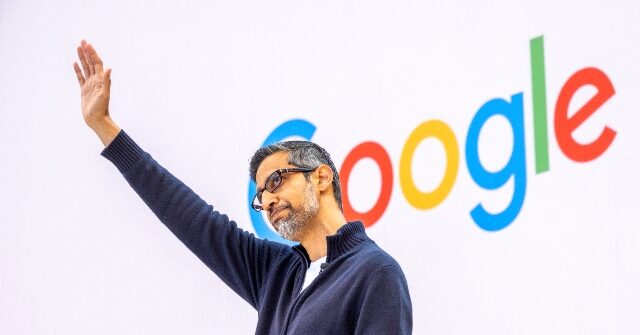A group of prominent lawyers with close ties to Big Tech companies are urging the federal judge presiding over the Google search antitrust case to exercise caution when imposing remedies against Google’s online monopoly.
The New York Post reports that a group boasting former DOJ and FTC antitrust enforcers recently submitted an amicus brief to US District Judge Amit Mehta, who is presiding over the Google search antitrust trial. The brief, claiming to be made “in support of neither party,” warned against aggressive remedies like forcing Google to sell its Chrome browser. However, an investigation by the Post has revealed that many of the brief’s coauthors have direct or indirect links to Google and other Big Tech firms.
Judge Mehta is expected to rule by August on the most effective way to curb Google’s illegal dominance over online search, following his ruling last year that declared the company a “monopolist.” The DOJ is pushing for significant measures, including the sale or spinoff of certain business segments, rather than merely punishing past misdeeds.
The amicus brief’s arguments closely align with Google’s defense, asserting that the DOJ’s proposals exceed the scope of antitrust law and risk jeopardize American AI leadership and even national security. Critics, such as Sacha Haworth, executive director at the Tech Oversight Project, have expressed concern over the lawyers’ links to Big Tech, stating that “it speaks volumes that the only people rushing to Google’s defense are people paid by Google to care.”
Among the brief’s coauthors are Joe Sims, who dismissed criticism of Google’s widespread evidence destruction as “silly” last year, and Willard Tom, who previously defended Google in the high-profile antitrust lawsuit filed by Fortnite developer Epic Games. Other contributors include Tad Lipsky, head of the competition advocacy program at George Mason University’s Global Antitrust Institute, which has received millions in funding from Google and other Big Tech firms while frequently arguing for a light touch on antitrust enforcement.
Others involved in the brief include Richard Parker, a former partner at Morgan, Lewis & Bockius, represented Google against Epic Games’s antitrust lawsuit until his retirement in July 2022. Terry Calvani worked at law firm Freshfields Bruckhaus Deringer from 2005 to 2019, during which time the firm served as an outside counsel for Google in several lawsuits. Jon Neuchterlein, a nonresident senior fellow at the Technology Policy Institute, which has received donations from Google, Amazon, and Apple, was a partner at the law firm Sidley Austin from 2015 to 2024, during which time the firm counted Amazon, Apple, Microsoft, and Intel among its clients.
While lawyers closely associated with Big Tech are rushing to Google’s defense, even the remedy phase of the search antitrust trial brought forth new information about how Google wielded the might of its search monopoly against publishers, especially when it comes to AI. As Breitbart News previously reported:
Bloomberg reports that as artificial intelligence continues to transform the search landscape, Google’s practices in using web publishers’ data to train its AI models have come under increasing scrutiny. A recent court document revealed during the company’s ongoing search antitrust trial sheds light on the tech giant’s decision-making process regarding publisher opt-outs for AI search features.
According to the internal document written by Chetna Bindra, a product management executive at Google Search, the company considered various options for giving web publishers control over how their data is used in AI search. These options ranged from allowing publishers to opt out of specific AI features, such as AI Overviews, to more comprehensive opt-outs that would prevent their data from being used to train AI models altogether.
However, Google ultimately decided against providing publishers with these choices, citing complications in training AI models and maintaining a seamless search experience. The document stated that Google had a “hard red line” and would require all publishers who wanted their content to appear in search results to also allow their data to be used for AI features. This decision was made without a public announcement, opting for a “silent update” instead.
Read more at the New York Post here.
Lucas Nolan is a reporter for Breitbart News covering issues of free speech and online censorship.
Read the full article here


